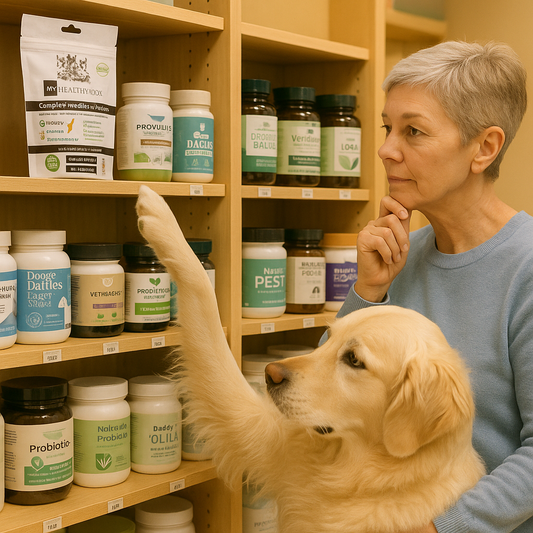The Porcelaine, known for its sleek, elegant appearance and keen hunting abilities, is a breed that combines grace with tenacity. This article delves into the origins, distinctive appearance, and engaging temperament of the Porcelaine, along with essential care tips to ensure they lead healthy, fulfilling lives.
Breed Summary
Origin and History
The Porcelaine, also known as the Chien de Franche-Comté, originates from France and is one of the oldest French hound breeds. It is believed to have been developed in the 18th century from a mix of the now-extinct Montaimboeuf and other French scent hounds. The breed was named "Porcelaine" due to its smooth, white, and glossy coat, resembling fine porcelain. The Porcelaine was primarily used for hunting hare and deer, prized for its speed, stamina, and excellent sense of smell. Recognized by the Fédération Cynologique Internationale (FCI), the Porcelaine continues to be valued both as a hunting dog and a family companion.
Appearance
The Porcelaine is a medium-sized dog with a distinctive, elegant appearance. They typically stand between 21 to 23 inches tall at the shoulder and weigh between 55 to 62 pounds. Their coat is short, smooth, and glossy, predominantly white with possible orange spots. They have a well-proportioned, muscular build with a deep chest and a slender, arched neck. Their head is noble and refined, with long, drooping ears and expressive, dark eyes. The tail is long and tapering, carried in a gentle curve.
Temperament
Porcelaines are known for their gentle, affectionate nature and keen hunting instincts. They are intelligent and eager to please, making them relatively easy to train. Their friendly and social demeanor makes them excellent family pets, although their high energy levels and strong prey drive require regular exercise and mental stimulation. Porcelaines are good with children and other dogs, but early socialization is important to ensure they are well-adjusted and confident.
Health Outlook
The lifespan of a Porcelaine ranges from 12 to 14 years. They are generally healthy dogs but can be prone to certain conditions, such as hip dysplasia and ear infections. Regular grooming and ear care are essential to prevent infections. Dry, itchy skin can be a concern, making the use of premium dog shampoos designed to moisturize and soothe sensitive skin beneficial. These shampoos help maintain the skin's natural oils, provide relief from itching, and promote overall skin health.
Nutritional Requirements
A balanced diet is crucial for maintaining the health and vitality of a Porcelaine. High-quality dog food rich in protein and low in fillers is recommended to support their active lifestyle. Including a complete multivitamin can ensure they receive all necessary nutrients, promoting strong bones, a healthy coat, and overall well-being. Supplements that support joint health and digestive health can also be beneficial for this breed.
Exercise Requirement
Porcelaines are high-energy dogs that require regular exercise to stay healthy and happy. Daily walks, play sessions, and activities that engage their natural hunting instincts, such as scent work and tracking, are ideal. Providing mental stimulation through puzzle toys and training exercises is also important to prevent boredom and destructive behavior.
Pros and Cons of Owning the Breed
Pros:
- Gentle and affectionate, forming strong bonds with family members.
- Highly skilled and versatile hunting dog.
- Intelligent and trainable, suitable for various activities.
Cons:
- High energy levels require consistent exercise and mental stimulation.
- Can be prone to ear infections, requiring regular grooming and ear care.
- Strong prey drive necessitates early socialization and training.
Space Requirements
Porcelaines adapt well to various living situations, but they thrive best in homes with access to a yard where they can run and play. They can adapt to apartment living if provided with sufficient exercise and mental stimulation.
Suitability for Elderly
Porcelaines can be suitable companions for elderly individuals who are active and able to meet the breed's exercise needs. Their gentle and affectionate nature makes them excellent companions, but potential owners should be prepared for their high energy levels and grooming requirements.
Suitability for Kids
Porcelaines are generally good with children due to their gentle and friendly nature. They enjoy engaging in activities with kids and can be wonderful playmates. Supervision is recommended, especially with younger children, to ensure safe interactions.
Cost
The cost of a Porcelaine puppy can range from $1,000 to $2,500, depending on the breeder's reputation and the pup's lineage. Ongoing costs include high-quality food, regular veterinary care, grooming products, and potential healthcare expenses.
What Should the Owner Be Like?
Owners of Porcelaines should be active, patient, and committed to providing regular exercise and mental stimulation. They should have an understanding of the breed's unique healthcare needs and be prepared to invest time in grooming and training. A loving and attentive owner will ensure this elegant and intelligent breed thrives.
Fun Facts
- The Porcelaine is known for its distinctive, porcelain-like coat, which is sleek and glossy.
- Despite its elegance, the Porcelaine is a robust and hardy breed, capable of enduring long hunting trips.
Conclusion
The Porcelaine is a remarkable breed that combines elegance, intelligence, and a strong hunting instinct. While they come with specific care requirements, the joy and companionship they provide make them a cherished member of any family. For those who appreciate a blend of grace, energy, and affection, the Porcelaine is an excellent choice.
Are you familiar with the Porcelaine or have this wonderful breed in your family?
Share your stories in the comments!
Share the Article with friends!





